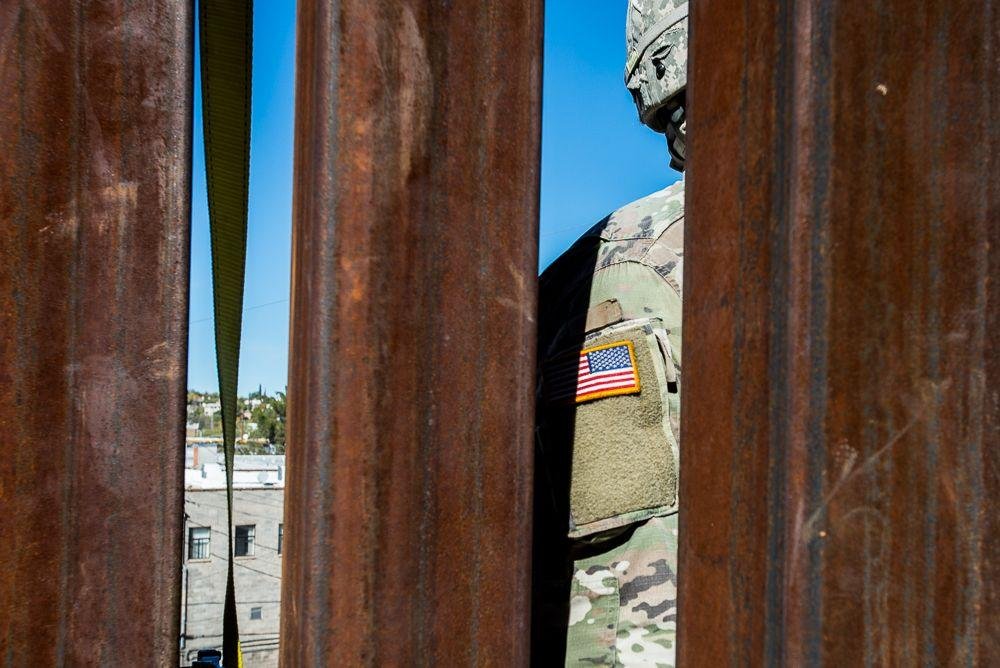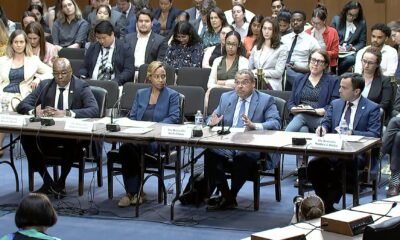border
Trump Unveils Immigrant Roundup Strategy as Militias Await Call to Action

President-elect Donald Trump has announced intentions to declare a national emergency upon taking office, proposing the use of military resources on American streets to facilitate mass deportations of undocumented migrants. This commitment has raised significant alarms among experts, who argue that the economic contributions of immigrants are vital. They assert that large-scale deportations could severely impact sectors such as agriculture and housing construction, potentially destabilizing the economy.
As a scholar with over 15 years of study on U.S. domestic militias, I harbor additional concerns. Some militia groups may perceive it as their duty to aid in Trump’s deportation agenda. Reports indicate that local law enforcement could even partner with these militias in the enforcement of immigration laws, escalating an already tense situation.
Historically anti-government, militias are often distrustful of state authority. Their members exhibit animosity toward what they perceive as an overreaching and corrupt federal government, claiming excessive taxation undermines their freedoms. However, this distrust does not preclude them from supporting national defense, especially if they believe that undocumented migrants threaten the nation’s safety.
Research indicates that many militia members harbor misconceptions about immigration, viewing undocumented individuals as criminals by virtue of their status. This perspective is further fueled by xenophobia and a belief that such migrants unfairly compete for jobs and social benefits. Trump’s hardline immigration stance resonates with these sentiments, rallying support among various militia factions.
Militia groups often equate national defense with aggressive action against perceived threats, including undocumented migrants. This rationale could easily justify military involvement in deportation efforts, which many scholars warn would pose a serious threat to democratic principles.
Some militia units, particularly in border states, have been actively involved in deportation initiatives. They patrol borders, detain migrants, and frequently report to federal Border Patrol agents. However, the Border Patrol has historically questioned the motivations and effectiveness of these civilian groups.
Increasingly, local law enforcement agencies, especially sheriffs, have sought assistance from militias, participating in joint events aimed at immigration enforcement. Such collaborations could blur the lines between official law enforcement and civilian militias, raising ethical questions about accountability and the rule of law.
Past interactions between Trump and militia groups have suggested a degree of support for their initiatives. His comments during the 2020 presidential debate directed at the Proud Boys and his earlier pardons for figures involved in standoffs with federal authorities highlight a concerning pattern of encouragement.
The involvement of military forces in immigration enforcement has reached unprecedented levels. In early 2024, Texas Governor Greg Abbott took measures to block Border Patrol operations, claiming a need to safeguard against a so-called “invasion” at the border.
As Trump prepares for a potential second term, the likelihood of him maintaining his aggressive immigration rhetoric remains high. Given the Supreme Court’s position on presidential immunity, the absence of restraint in his approach could embolden vigilante actions among civilians and militia members alike.
In November 2024, two militia members were convicted for plotting to harm federal agents, highlighting the dangerous intersection of anti-immigrant sentiment and violence within these groups. However, dissent exists within militia circles regarding the use of military forces for deportation, suggesting a division in their ranks. One militia member expressed concerns about intertwining military roles with law enforcement, underlining the complexities in addressing immigration issues through such contentious means.


















